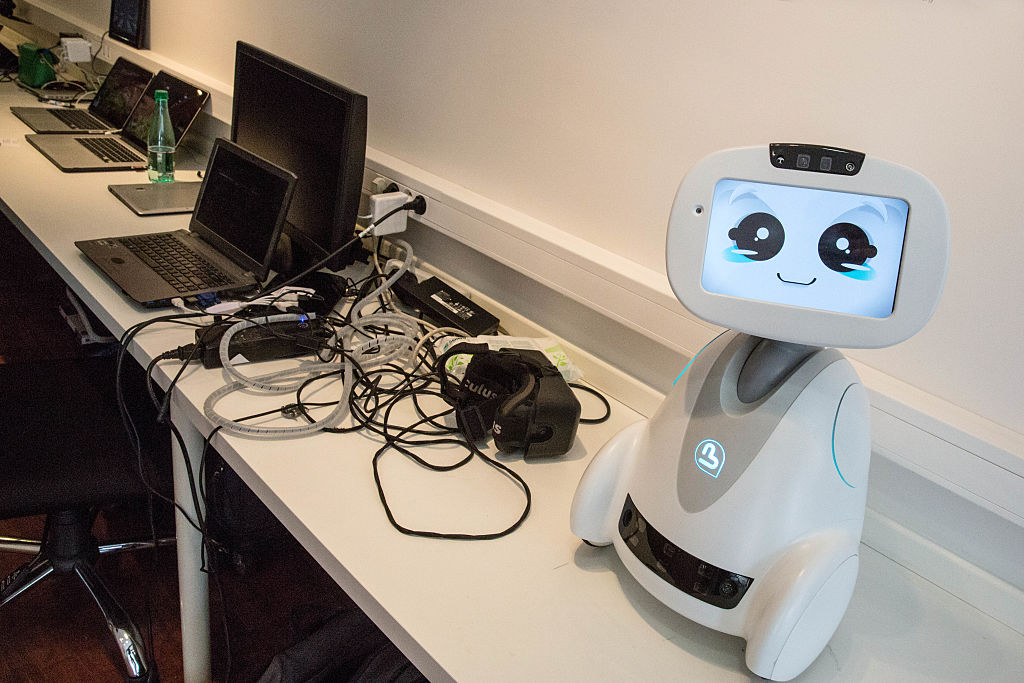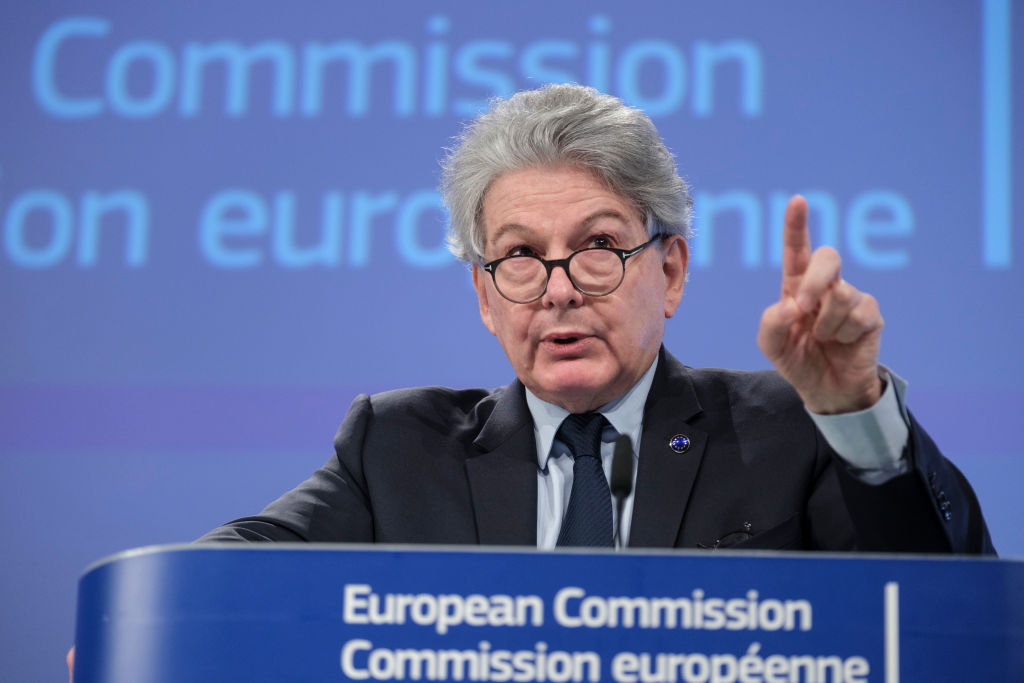Apple made a major concession in its battle to protect the dominance of its App Store on iPhones and other devices in Europe, saying developers will be free to distribute their apps directly to consumers.
Its move on March 12 came just a day after Brussels Signal reported that Apple had bowed to the demands of the European Commission after receiving publicly issued threats by the bloc’s self-styled “digital enforcer” Thierry Breton.
These approved changes include letting developers set up alternative app marketplaces to offer a catalogue solely made up of the developer’s own apps — with immediate effect.
Developers can now also choose how to design in-app promotions, discounts and other deals when directing users to complete a transaction on their website instead of using Apple’s template.
“To reflect the DMA’s changes, users in the EU can install apps from alternative app marketplaces in iOS 17.4 and later. Users will be able to download an alternative marketplace app from the marketplace developer’s website,” Apple said on its website.
Apple is not entirely abandoning its restrictions on the delivery of third-party apps.
Developers will only be able to distribute apps via a website if they have been a part of Apple’s App Developer Program for a minimum of two years, and have an app that has had a million or more prior installs within the EU over the last year.
Any app distributed in this way will also first have to be “notarized” by Apple, a process during which the iPhone maker scans the developed app for malware as well as certain code problems before approving it for use on their products.
Apple has bowed to the demands of the European Commission after receiving publicly issued threats by the bloc’s self-styled “digital enforcer” Thierry Breton. https://t.co/W1DoE4rvH3
— Brussels Signal (@brusselssignal) March 11, 2024
The company had been accused of breaking the European Union’s new Digital Markets Act (DMA) with its decision to ban an iPhone app developer account belonging to corporate rival Epic Games.
Coming into force a few days before, the ban had prompted uneasiness in Brussels, with Breton taking to Elon Musk’s social media platform X to “order” Apple to obey the new rules.
Apple announced the changes to comply with the European Union’s DMA, which kicked in last week. The changes could dent the high-profit margins and steady stream of revenue that Apple has come to rely on from its App Store, where it charges developers fees of up to 30 per cent.
The changes, which affect only the EU, come amid continuing criticism from rivals that Apple’s compliance efforts are falling short.
Beginning this spring, software developers operating in Europe will be able to distribute apps to EU customers directly from their own websites instead of through the App Store.
Developers must still meet terms and conditions set by Apple and be authorised developers. Apple has also introduced a “core technology fee” of 50 euro cents per user account each year, even if developers opt not to use Apple’s App Store or payment system.
The DMA aims to rein in Big Tech companies such as Apple, Amazon, TikTok owner ByteDance, Meta Platforms, Alphabet’s Google and Microsoft — and create a level playing field for smaller rivals and, ultimately, more competition for Europeans.
The opening in Europe of Apple’s ecosystem, which the company has long regarded as a highly profitable “walled garden”, comes at a sensitive time for the Big Tech giant.
The iPhone maker is struggling with shrinking revenue and weak demand for its smartphones in China. In January, Microsoft topped Apple as the world’s most valuable company, with investors viewing Apple as lagging its Big Tech rivals in the race to dominate artificial intelligence technology.
Under pressure from regulators and the DMA, Apple took a step back a few days ago in its feud with Epic Games.
As Brussels Signal reported at the time, in a statement on March 6, Epic Games claimed Apple’s decision to terminate one of its developer accounts over the feud violated the EU’s new competition rules, allowing it to put its own game store on iPhones and iPads in Europe. DMA violations can cost companies fines as much as 10 per cent of their global turnover.
Apple has also said it will appeal the EU anti-trust fine of €1.84 billion handed to it in the past few days over its thwarting of competition from Spotify and other music-streaming rivals via restrictions on the App Store.
Additional reporting by Reuters
The European Commission has fined Apple €1.8 billion for breaking the bloc’s anti-trust rules regarding music streaming. https://t.co/hHfwLJMt6x
— Brussels Signal (@brusselssignal) March 4, 2024





